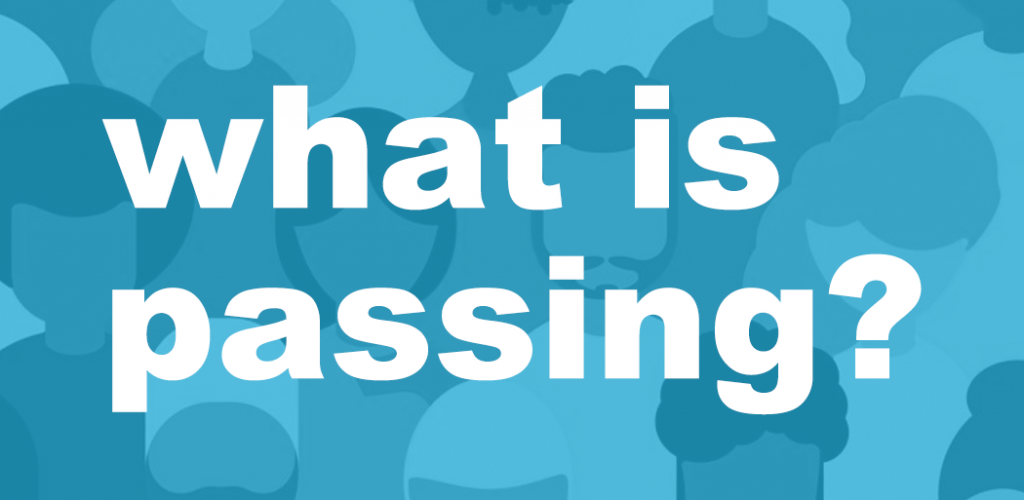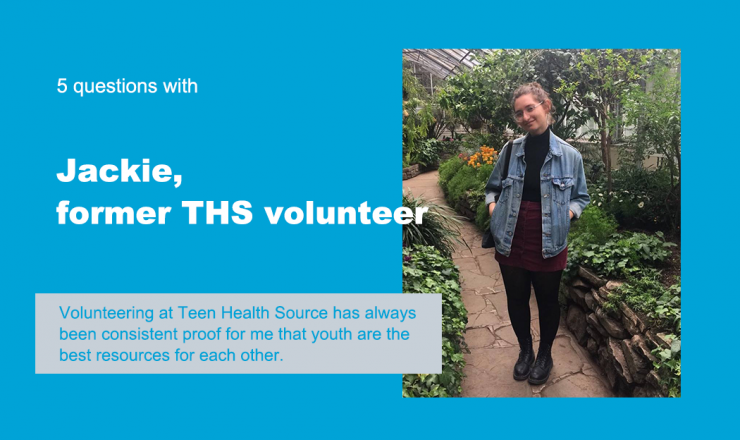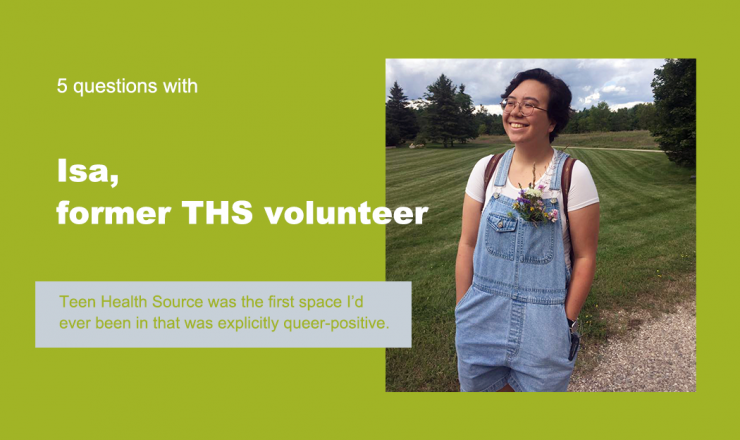

“Passing” can refer to a few different things within queer communities. Generally speaking, it means being perceived by people, and mainstream society as cisgender and/or heterosexual. There are a lot of different reasons why some people want to pass as cisgender. Passing is not inherently good or bad. It can be an affirming experience for some people, and a stressful, negative source of pressure for others. Passing is a complicated topic!
But before we get too far ahead, here are a few useful definitions to remember as we talk about passing:
And here are some other phrases that some folks like to use instead of passing:
Mainstream society generally has a pretty narrow understanding of gender. It’s usually that “men are people who look like men,” and “women are people who look like women.” This narrow binary obviously doesn’t fit how gender is felt and expressed for everyone. For people who don’t neatly fit into this system, day-to-day living can be filled with lots of stares while out in public, rude questions from strangers, barriers in accessing services, or worse.
Passing can help limit some of these barriers for people, and potentially reduce certain types of transphobic encounters. People who pass often have an easier time:
Passing as cis can sometimes allow trans people to move through society with more respect and acceptance from transphobic people that they would not be afforded otherwise. And since passing involves being read as the gender you present to the world, some people find successfully passing to be a gender-affirming experience (that society accepts who you present yourself as).
Some people decide to try to pass as cis to avoid discrimination or rejection differently in certain social communities. For example, you may be out to your friends or family but not at work, so it might be important for you to present in a way that you pass to your coworkers. Deciding how much of your identity to reveal, and where to reveal it, is a personal decision based on many different factors.
Passing is situational and obviously complicated. Someone who comfortably passes in one environment may be read as trans in another. A lot of people (including people in queer communities) have complicated feelings with the term and idea of passing. Lots of people think it’s too exhausting to try and conform to mainstream society’s gender standards.
The notion of passing is also tied in with intersectional forms of oppression. Passing can require a financial investment for surgeries, penis packers, hormone therapy, and other techniques people use to change the way they present themselves. Changing your name legally and modifying records also requires time and money. People of colour may also struggle more to pass as cisgender due to racial stereotypes.
For many trans people, passing is a survival tactic: you wouldn’t be able to access basic services or feel safe in your community if you did not pass successfully. And while many people are proud to be openly trans, it’s important to note that this is simply not possible for everyone. Choosing to pass doesn’t challenge society’s underlying transphobia, but dismantling this oppression is not the job of already-marginalized queer people. Just existing as a queer person is a radical act, and people who pass should not be blamed for setting back social progress or “assimilating” into mainstream society. We should focus instead on targeting the oppressive power structures that pressure people to act and present in a certain way.
In recent years, trans rights have become a more mainstream conversation in North America. However, some of the more prominent trans activists and celebrities fit a very specific mold: conventionally attractive men and women who fit into the gender binary and pass (e.g., Laverne Cox and Caitlyn Jenner). This kind of one-sided representation reinforces the incorrect idea that trans people should only be recognized and celebrated if they can successfully pass.
Think about how some Public Service Announcement campaigns around educating and encouraging the rights of trans people using gendered washrooms (or advocates for all-gender washrooms) similarly feature conventionally attractive trans people who are usually read as cis. This kind of logic suggests that people need to look a certain way for their gender to be valid. In reality, all people belong in whichever washroom matches their gender identity – not which washroom they look like they should be in.
There’s nothing wrong with the media featuring trans people who more conventionally pass, but it’s a problem when that’s the only trans representation. Your gender’s validity doesn’t depend on whether or not you pass mainstream society’s standards. Full representation should also show trans people who don’t pass, who don’t want to pass, or who only pass some of the time.
Moreover, the media’s focus on stereotypically masculine or feminine trans people ignores nonbinary people altogether!
As we’ve said above, passing as cis can be an affirming experience for some people. Decisions that we make about how we present to the world is called our Gender Expression. Below are a few things that contribute to our gender expression:
This is in no way an exhaustive list of all the things involved in Gender Expression. But depending on how much any of these things can be seen as stereotypically Masculine or Feminine will affect how people perceive our genders.
Here are some articles that our volunteers found helpful while putting together this blog post:
If you have questions about this topic, feel free to contact one of our peer educators. [Link]
Last Updated: June 2020

Did you know that Teen Health Source has been around for 25 years! To help celebrate our 25th Anniversary, we’re checking in with some of our previous volunteers. Today we’re hearing from Jackie!

Did you know that Teen Health Source has been around for 25 years! To help celebrate our 25th Anniversary, we’re checking in with some of our previous volunteers. Today we’re hearing from Isa!

What’s one thing that people don’t talk enough about when it comes to having sex for the first time: Pleasure! Join us for this fun and breezy conversation about some of the myths, worries, and strategies people can use when it comes to having sex for the first time.